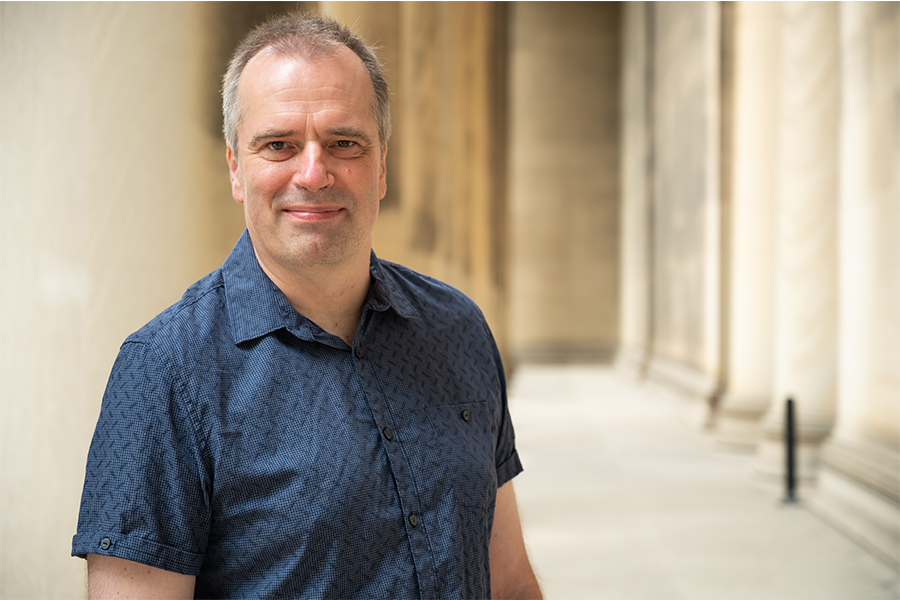Bernhard Designs Materials for Energy, Electronics of the Future
By Maria Guo
Media InquiriesStefan Bernhard, Scott Institute Energy fellow and Carnegie Mellon University chemistry professor, conducts research on converting sunlight into fuel, which has been the driving force of his work since his undergraduate career.
According to Bernhard, with the ability to store sustainable solar energy, this source could power the future, eventually replacing oil and gas.
“A challenge with solar energy is that the sun doesn’t always shine. Being able to store solar energy then becomes very important,” he said.
Bernhard is currently working on a project utilizing a process that will produce hydrogen from renewable feedstocks using light as a renewable energy source. A recently awarded U.S. Department of Energy grant will fund the work, in collaboration with Scott Institute Energy Fellow Zachary Ulissi and Faculty Affiliate John Kitchin, and the University of Pittsburgh’s Jill Millstone.
“Hydrogen from renewable sources such as biomass feedstocks using renewable energy is an important component in making chemicals and fuels,” said Bernhard. “Conventional approaches to renewable hydrogen production using thermal catalytic methods are difficult to optimize because the catalysts are prepared separate from the reaction conditions in the reactor.”
The critical feature of the process Bernhard and his team are leveraging is that the catalysts are formed during the reactions, enabling a data-driven approach to optimization and catalyst discovery. Throughout these efforts, machine learning and data science will be used to facilitate data exploration and visualization, as well as to enable improved design of experiments and discovery of new materials for this process.
“There is an unprecedented amount of data that we can now utilize with machine learning and data science in order to help predict the next experiment in this project,” said Bernhard.
Education and Mentorship
While graduate students and postdoctoral research associates are crucial to the Bernhard Research Group, Carnegie Mellon undergraduate students also play a significant role. At Tech Spark, the new-ish makerspace in the College of Engineering, students have built complex parts utilized in Bernhard’s laboratory.
“CMU undergraduates are extremely talented at building research equipment,” he said.

This semester, Bernhard is teaching ‘Chemistry and Light,’ which covers the fundamentals of any chemical process that involves molecules, photons, light absorption, glow in the dark, photochemistry and photosynthesis. Students hail from different areas in and outside of campus, including CMU chemistry undergraduates and College of Engineering graduate students, as well as researchers from PPG industries who are interested in the chemistry behind transition lenses in glasses, which automatically darken when in sunlight.
Bernhard holds a Ph.D. degree in chemistry from the Université de Fribourg in Switzerland. He started his chemistry career as a laboratory technician apprentice with Swiss chocolate company, Toblerone.
He is the recipient of a National Science Foundation CAREER Award and the Graduate Mentoring Award from Princeton University. His published work has been cited almost 12,000 times.
Outside of his research and teaching, Bernhard enjoys tackling renovation projects with his wife and spending time with his four children, two of whom are current CMU students.